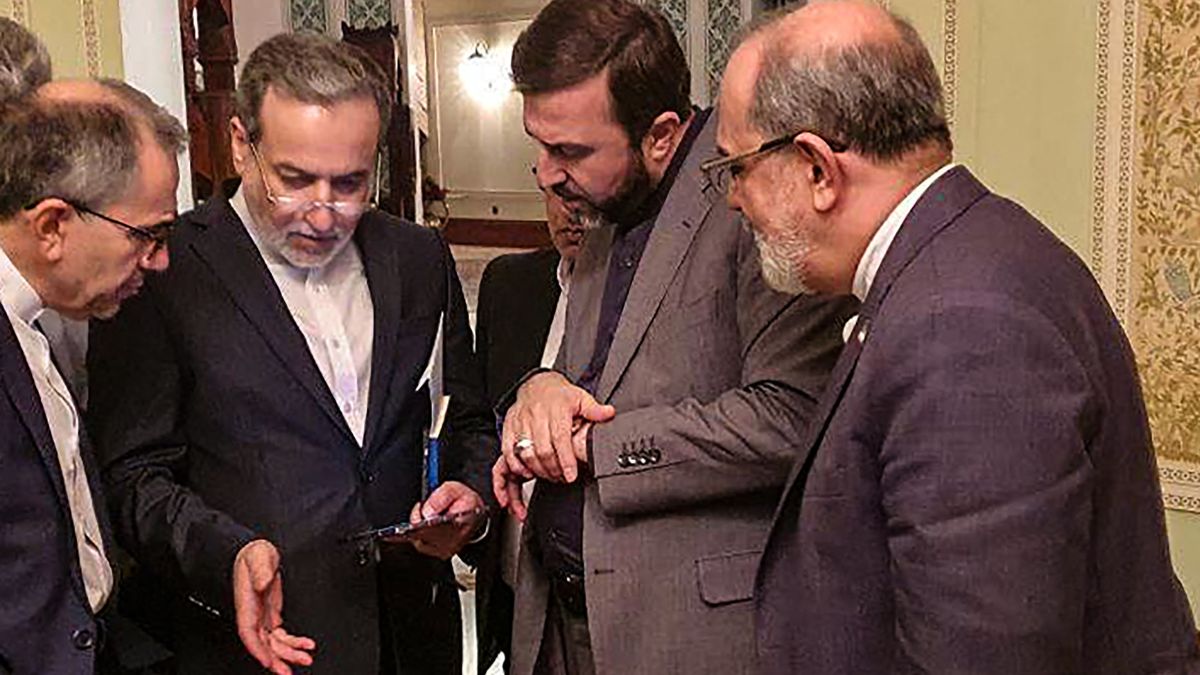US-Iran talks on Saturday in Oman marked a “step forward” between the two adversaries, the White House said, describing discussions including President Donald Trump’s regional envoy as “positive and constructive.”
“These issues are very complicated, and Special Envoy (Steven) Witkoff’s direct communication today was a step forward in achieving a mutually beneficial outcome,” the White House said in a statement, adding the sides agreed to “meet again next Saturday.”
The meeting comes as President Donald Trump warns of potential military action if they fail to reach a deal.
Iranian Foreign Minister Abbas Araghchi, who briefly met face-to-face with Trump’s special envoy Steve Witkoff during the ‘indirect talks’, told state television, “I think we are very close to a basis for negotiations, and if we can conclude this basis next week, we’ll have gone a long way.”
“The American side also said that a positive agreement was one that can be reached as soon as possible but that will not be easy and will require a willingness on both sides,” he said.
“At today’s meeting, I think we came very close to a basis for negotiation… Neither we nor the other party want fruitless negotiations, discussions for discussions’ sake, time wasting or talks that drag on for ever,” he added.
Oman’s foreign minister acted as intermediary in the talks in Muscat, Iran said. The Americans had called for the meetings to be face-to-face.
However, the negotiators also spoke directly for “a few minutes”, Iran’s foreign ministry said. It said the talks were held “in a constructive and mutually respectful atmosphere”.
Impact Shorts
More ShortsThe long-term adversaries, who have not had diplomatic relations for more than 40 years, are seeking a new nuclear deal after Trump pulled out of an earlier agreement during his first term in 2018.
Araghchi, a seasoned diplomat and key architect of the 2015 accord, and Witkoff, a real estate magnate, led the delegations in the highest-level Iran-US nuclear talks since the previous accord’s collapse.
The two parties were in “separate halls” and were “conveying their views and positions to each other through the Omani foreign minister”, Iran’s foreign ministry spokesman Esmaeil Baqaei posted on X.
The process took place in a “friendly atmosphere”, Omani Foreign Minister Badr Albusaidi said.
Iran, weakened by Israel’s pummelling of its allies Hezbollah in Lebanon and Hamas in Gaza, is seeking relief from wide-ranging sanctions hobbling its economy.
Tehran has agreed to the meetings despite baulking at Trump’s “maximum pressure” campaign of ramping up sanctions and repeated military threats.
Meanwhile the US, hand-in-glove with Iran’s arch-enemy Israel, wants to stop Tehran from ever getting close to developing a nuclear bomb.
Neither Iran nor the United States want talks that “drag on for ever”, Foreign Minister Abbas Araghchi said Saturday after a first round of discussions with US envoy Steve Witkoff.
“Neither we nor the other party want fruitless negotiations, discussions for discussions’ sake, time wasting or talks that drag on for ever,” Araghchi told Iranian state television, adding that the next round of talks was set for next Saturday.
With inputs from agencies


)

)
)
)
)
)
)
)
)



